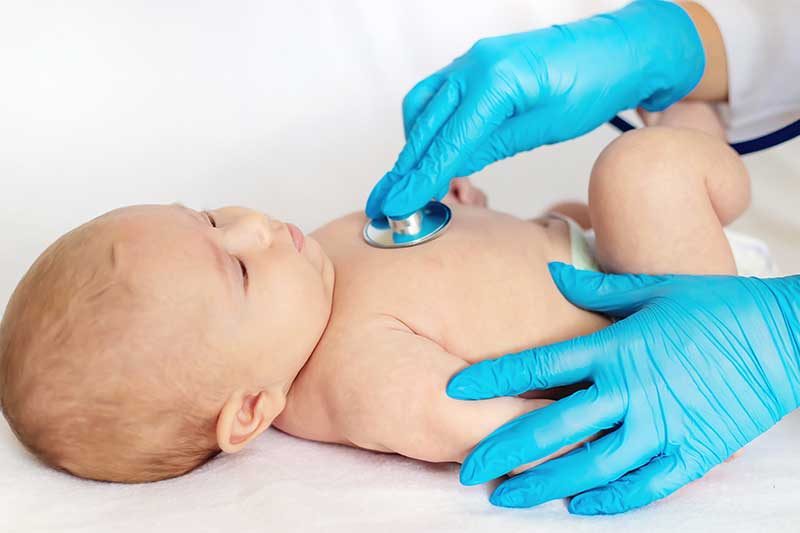Welcoming a newborn into the world is an exciting experience that is accompanied by a flurry of emotions and obligations. One of the most important jobs for new parents is to ensure their infant receives various health exams immediately after birth. These exams are critical because they help uncover any health problems that may not be immediately obvious. Here’s an in-depth look at what these screenings entail and why they are so important.
Why Newborn Screening is Vital
Newborn screenings are intended to discover early indicators of problems that may jeopardize a child’s long-term health or life. Early detection through these screenings can result in measures that can avert serious health problems, improve a child’s development, and, in some circumstances, save lives. The tests are specifically designed to identify illnesses that, while potentially severe, can be effectively controlled or cured if detected early.
Common Newborn Health Screenings
- Hearing Test: Almost every hospital conducts a hearing screening to detect any hearing impairment. Early diagnosis is critical for the development of speech and cognitive abilities. This test is often performed with soft earphones or ear probes, which assess the ear’s responsiveness to sound.
- Heart Screening (Pulse Oximetry): This easy, painless test detects oxygen levels in the baby’s bloodstream. It can assist in identifying babies with cardiac abnormalities who may require prompt attention. A tiny sensor is implanted on the baby’s skin (typically the foot) to measure oxygen saturation.
- Blood Screening: A few drops of blood are drawn from the baby’s heel to test for a number of genetic abnormalities, including phenylketonuria (PKU), sickle cell disease, and thyroid hormone deficiencies. The precise illnesses tested may differ by state or country, but they often cover conditions where early intervention might avert major health problems.
- Bilirubin Test: This test is used to determine the risk of jaundice, a frequent disorder in infants marked by yellowing of the skin and eyes. If not handled promptly, high bilirubin levels might cause significant neurological disorders.
When are the screenings performed?
Most newborn checks are performed within the first 24 to 48 hours of birth. If the baby is discharged from the hospital before 24 hours following birth, a follow-up test should be planned right away.
What Happens Following The Screenings?
If a screening test reveals a potential problem, more testing is necessary to confirm the diagnosis. It is critical for parents to follow up quickly with these additional tests to ensure that treatment may begin as soon as possible if necessary. Healthcare providers will provide guidance and assistance throughout the procedure, assisting with the management of any detected issues.
Newborn screenings are an important step toward ensuring the health and well-being of all newborn children. They give an important early check-up for illnesses that are treatable if detected early, promoting a healthy future. Understanding and engaging in these screenings is one of the earliest and most important things new parents can do to protect their baby’s health. Always talk with your healthcare physician to fully understand how these tests work and how to prepare for them.
